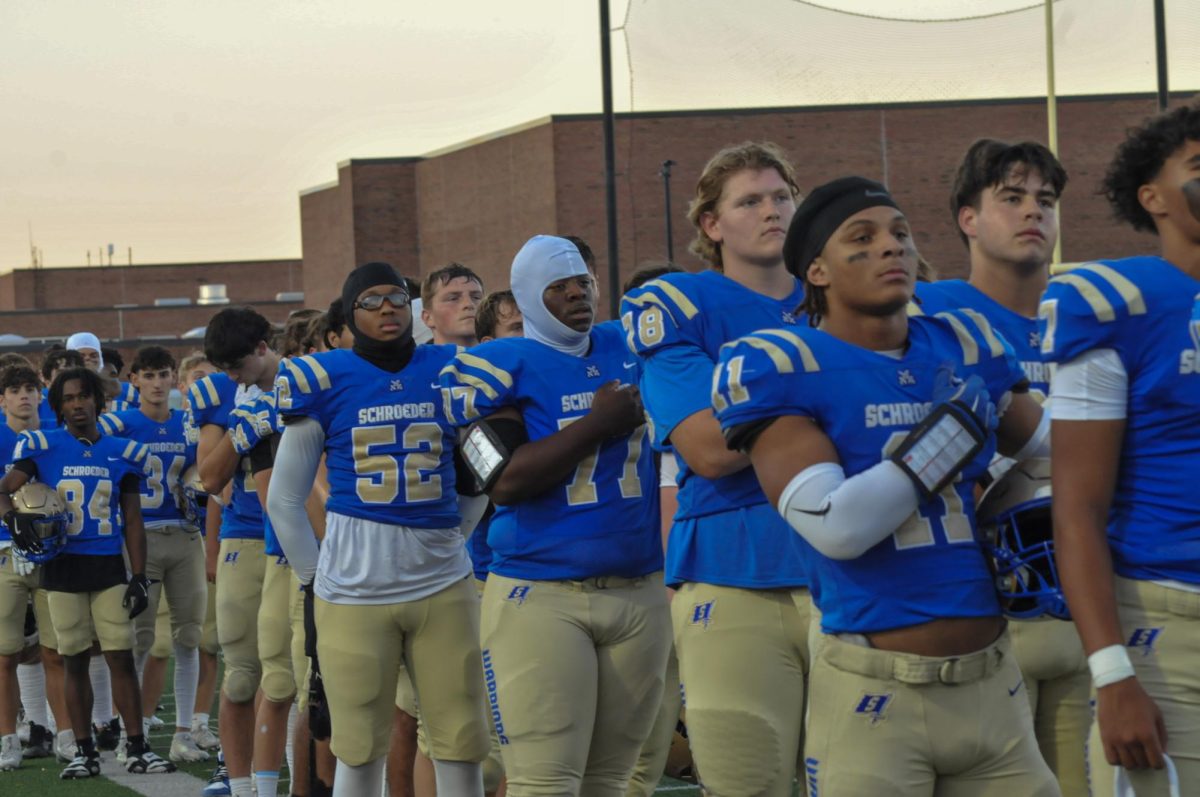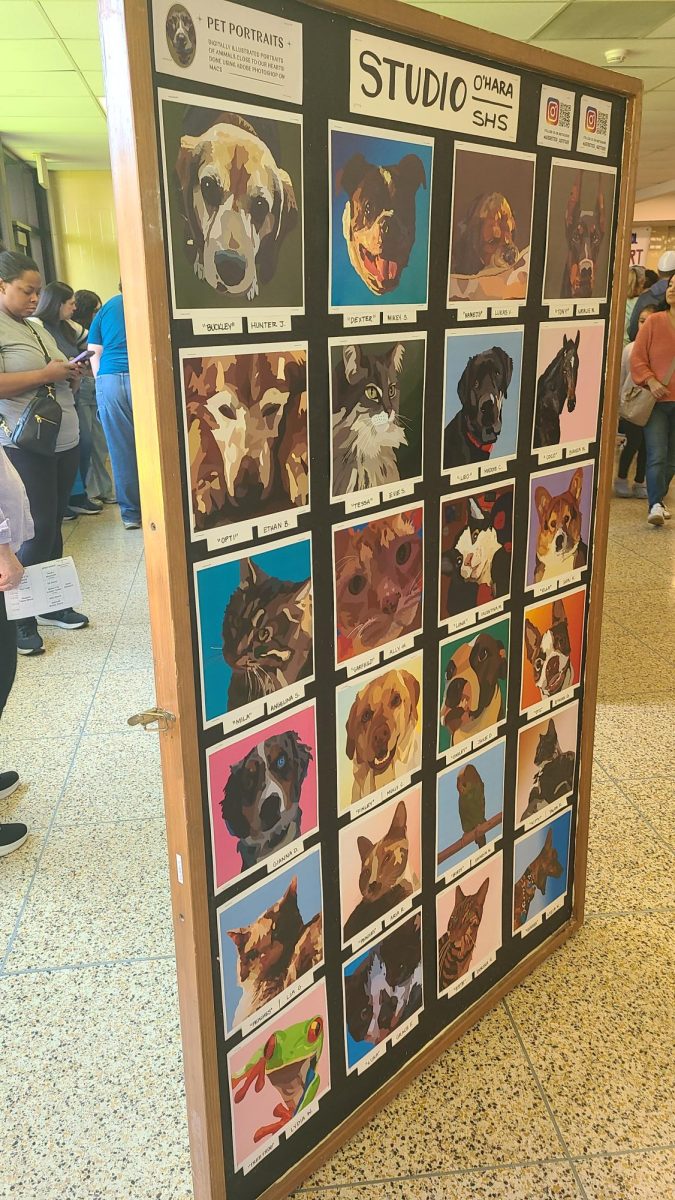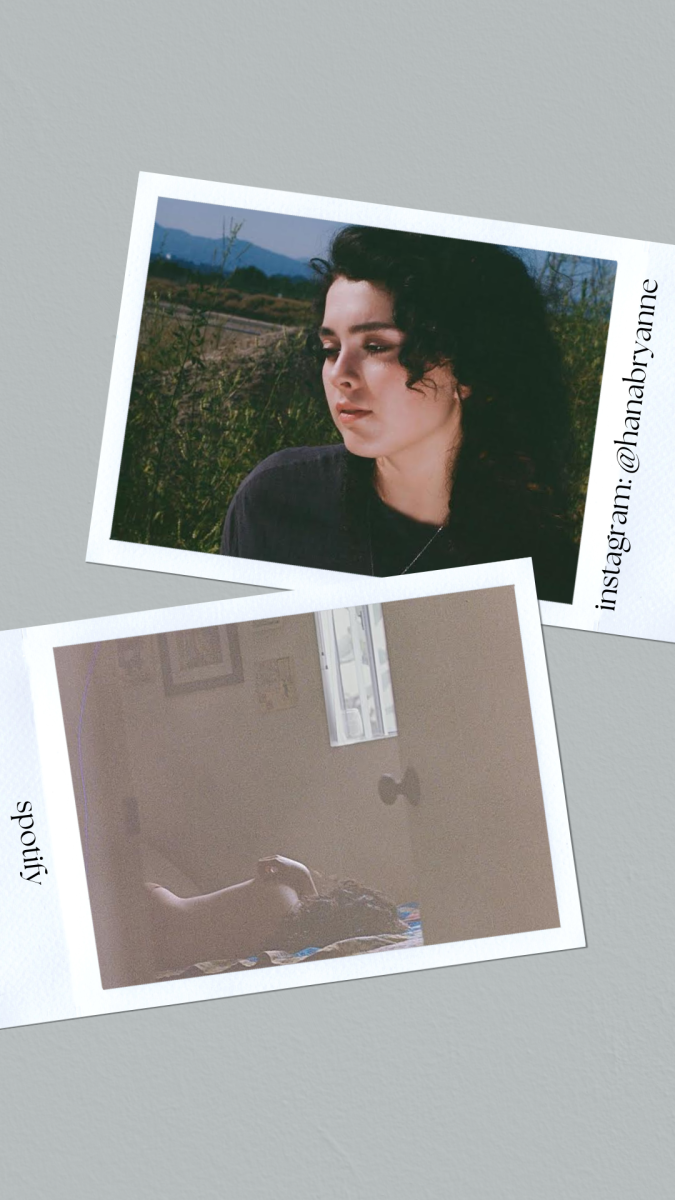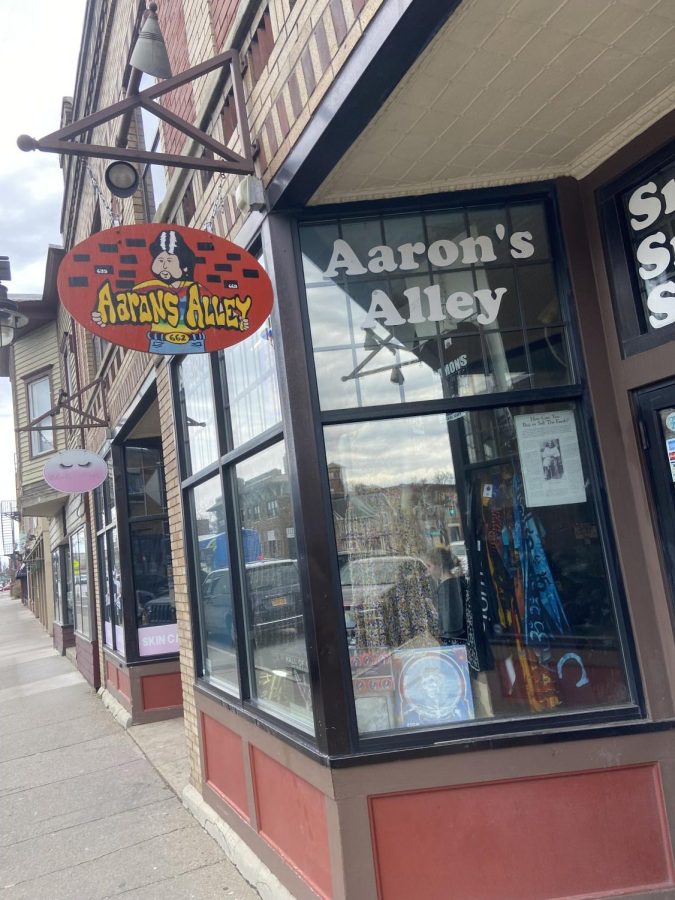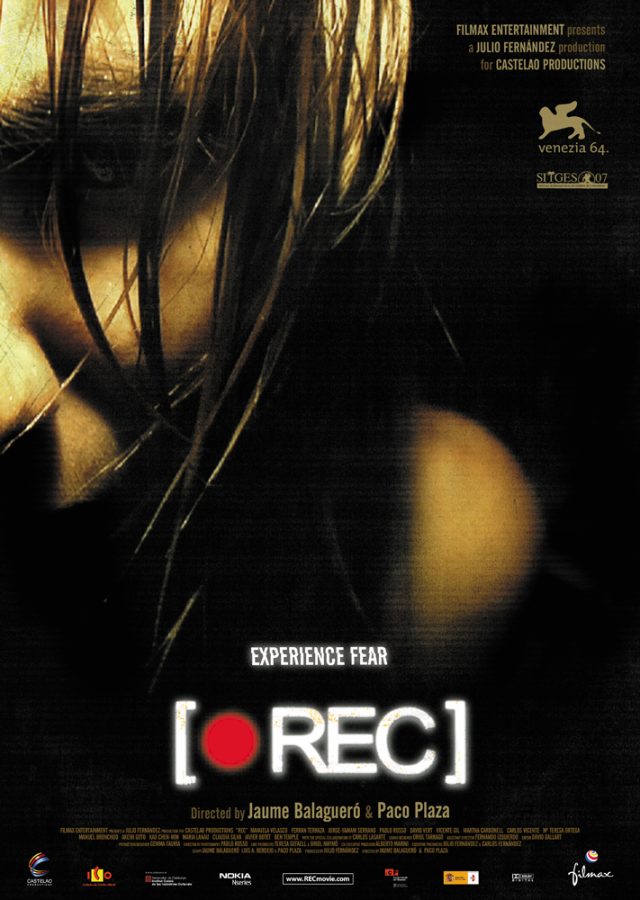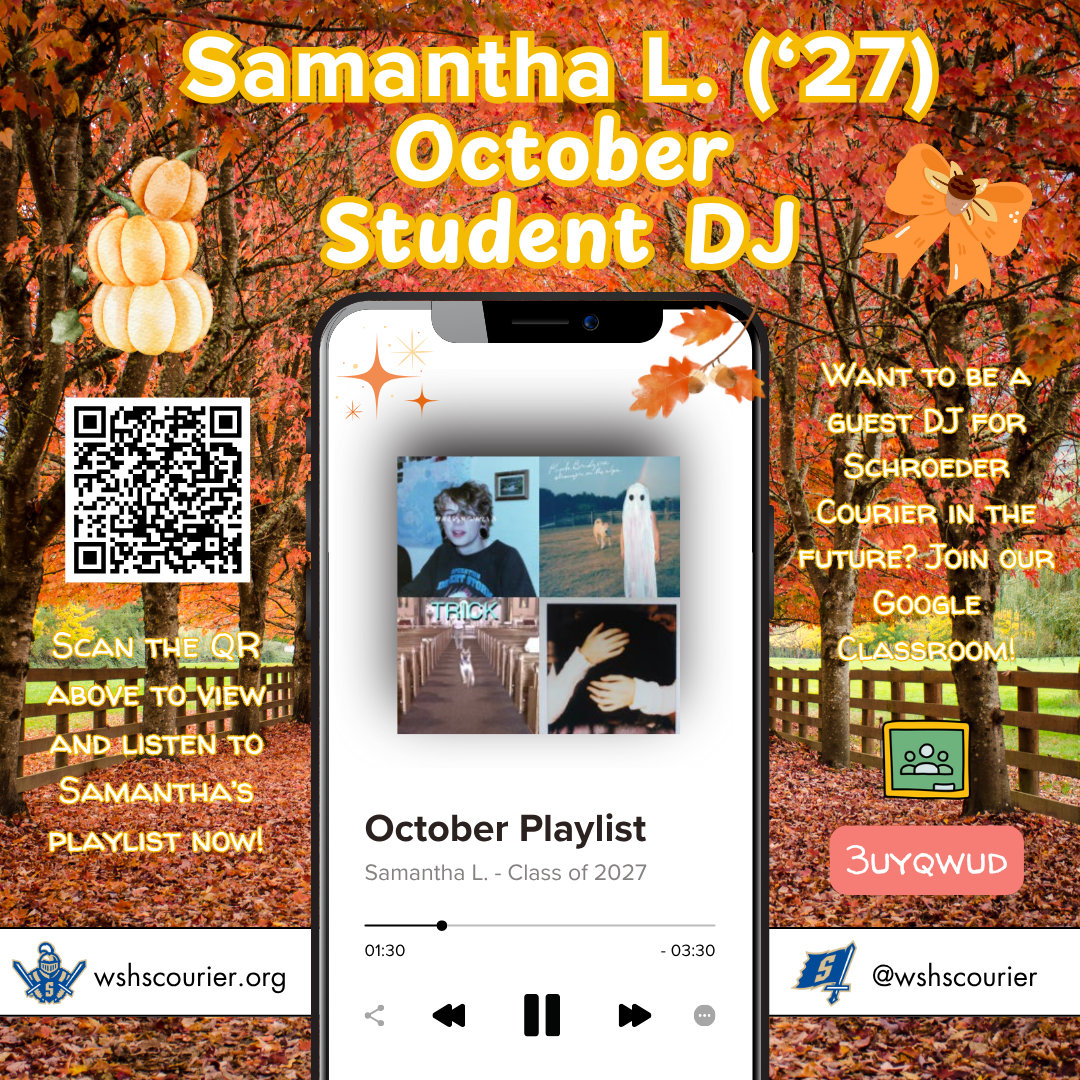On February 13, 2024 I added “Cold In Here” by Lil Ugly Mane (real name Travis Miller) to my Spotify playlist. I think I naturally discovered it through random recommendations from Spotify’s algorithm, or heard of the album through music discussions on the internet. The song is 4 minutes long, and was released in 2021 as part of his third studio album as Lil Ugly Mane, titled Volcanic Bird Enemy and the Voiced Concern. “Cold In Here” features soft drums, repeating acoustic guitar patterns, subdued vocals and occasional backing vocals that whimper out a melody.

The lyrics are very repetitive with only two short unique verses, while Travis Miller mostly repeats the chorus, with the vocal quality of someone who is extremely tired, and trying to sing, but fighting against flickering eyelids.
“Where was I?
Oh where was I?
Won’t you open up a window?
Get it cold in here
I want it cold in here
…
Let me be cold in here” (Cold In Here)
The song is up to multiple interpretations but can be seen as a reflection of Travis Miller being abused by someone he’s in a relationship with, reflecting on the quality of his own relationships, questioning if he’s neglecting others, and possible dissociation.
“She wants my breeze to turn to winds of rotting breath
Have me look into a mirror, and then realize I’m next
Under city lights she says she sees the worthless in my eyes
Ways I spend my time
The days that pass me by
But where was I?
…
She says I’m gonna die if I stay so preoccupied
With things that happen overnight
With dreams that feel as real as life
Under city lights she said that she sees the dead that’s in my eyes
Ways I waste my time
The days that pass me by
But where was I?” (Cold In Here)
I enjoyed this song a lot, and wanted to listen to the entire album, but I couldn’t find the time, or constitution to make it past the first couple songs. However, I did find the time to listen to another of Travis Miller’s projects, his 2015 album, Oblivion Access.
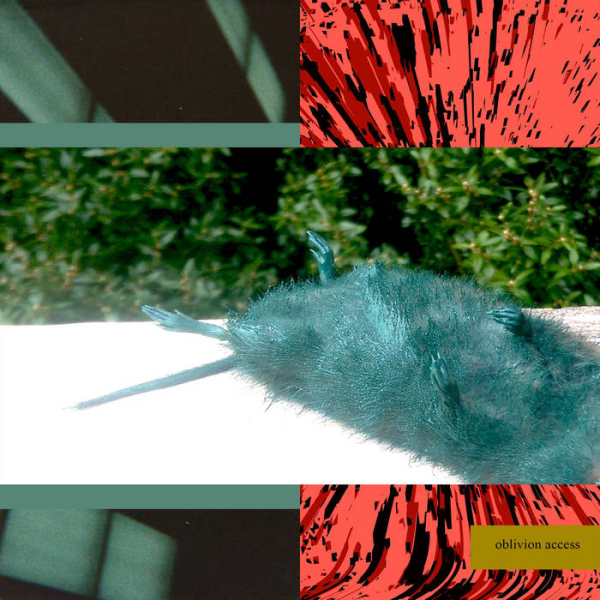
The first track is purely an instrumental, which could be categorized under the genre of “noise.” Rattling metal, harsh alarm sounds, and glitching technology can all be found within this opener, confusingly titled “Ejaculated Poisoned Wrench.” Not too long after this the listener will come to the fourth song, titled “Opposite Lanes.”
The song opens with a free-flowing sound almost like a whistle, but distinctly not a human whistle. Some light bells, almost like a xylophone, produce a melody; there’s some human whispering, and then all of a sudden, the listener is bombarded with hard hitting distorted bass that produces the dominant melody, as Travis Miller raps through gritted teeth:
“But nothing ever change until you willing to confront
Crooked cop, crooked cop, yeah, I see him too
Erry’ person has autonomy, we ain’t got a clue
I know it sound hazy when I twist that J
That Richtown way, these dummies catch a 6 round fade
And yeah I know them hunnies got them big round things
But really I don’t give a f**k about that blasé blasé
I play the resurrector like a Tribe cassette
Cause your third eye is just a f**king hole in your head
I play the resurrector like a Tribe cassette
Cause your third eye is just a f**king hole in your head” (Opposite Lanes)
I was shocked to learn that the same man who made “Cold In Here” could just 6 years earlier, create “Opposite Lanes,” such an extreme change in character, but also artistry, and that’s what I want to examine. I want to look at other artists’ changes in musical genre, and see how this compares to Travis Miller, aka Lil Ugly Mane.
Genre Changes
The genre switch alone is not what makes Lil Ugly Mane distinct, plenty of other artists have changed genres and subject matter. For instance, Taylor Swift infamously switched from a country artist to a pop artist in 2014, with the release of 1989.

In August of 2014, Taylor Swift announced that she would release her first pop album on October 27. She live-streamed the announcement, alongside the first single, “Shake It Off” on yahoo.com. Swift remarks, “We made the most sonically cohesive album I’ve ever made. I was listening to a lot of late ’80s pop, because I love the chances they were taking, and how bold it was, and how ahead of its time it was. What I found from reading up on it and really diving into the late ’80s, was it was apparently a time of limitless potential and this idea that you can be who you want, wear what you want, love who you want. The idea of that was so inspiring to me, so limitless possibility was a theme for me” (Music Row). Many have embraced her switch in genres, as is seen with her near 120 million monthly listeners on Spotify, and her several albums since 2014, that stuck to the genre of Pop (Chart).
However some fans in 2014 were a little divisive about the switch. My own mother was a fan of Taylor Swift’s country work, but didn’t really bother with her explorations of pop, although she has recently changed her mind and caught up on her discography: “I turned away from Taylor Swift because of her genre change, and I didn’t give her music a chance because I was so sure I wasn’t gonna like it. Y’know, 10 years later I decided to give it a chance and I absolutely love it. I missed out on 10 years of great music.”
Reactions can also be seen in the youth of the time. Amy Rostkowski, a 15-year-old attending Warren Woods Tower High School says “I’m not a big fan of Taylor’s new music. I was a die-hard fan of her old music. Now she just sounds like another artist trying to make a hit” Rostkowski continues, “In Taylor’s old music, her talent really shined through and meant something. Her new music, it just doesn’t. It’s not the Taylor Swift I know and watched blow up in the music world” (Warren Woods Tower)
Another artist who switched genres and was met with some pushback from some fans would be Kanye West.

On June 18 2013, Kanye West released his sixth studio album, Yeezus. A massive departure from his previous sound, although a change in sound was somewhat typical of West at the time, as he had done it three other times, with various degrees of severity. Yeezus was completely unexpected, and described as a “unapologetic broadside to many of his fans’ expectations” by James McNally of Ethnomusicology Review. Many note the lack of a clear radio single for the album, Lauren Nostro of Complex writes “There’s no song structured like a radio hit—verse followed by hook, with a solid intro or outro. It’s entirely abstract,” However, in 2024, the most popular song of the album is “Bound 2,” which Nostro notes is “absent of drums.”
Brandan Verrastro wrote “The Polarization of Yeezus” for Medium in 2020, a retrospective on the album, getting various Twitter users to reflect on what they felt in the summer of 2013. Infamously, the first track on Yeezus, “On Sight,” is a massive kaleidoscope of noise, grating processed and distorted bass, pushing the limits of 2013 speakers. Kameron, one of the Twitter users, questioned as part of the article, notes that they “hated ‘On Sight’ the moment I heard it! “On Sight” and “I Am A God” were the two songs I didn’t like when I first heard the album and seven years later they still are the worst songs to me. The other eight tracks are great though.”
Many other people echo similar sentiments, with some changing their opinion about Yeezus, and many critics have now praised the album for how it pushed musical creativity.
Another musician praised for their experimentation is that of Barrington DeVaughn Hendricks.

Known as JPEGMAFIA, Barrington DeVaughn Hendricks has already undergone genre shifts, from the extremely aggressive, political hip hop, headphone damaging Black Ben Carson (2016), to the experimental, varied sampling of screaming, milliseconds of movie dialogue, Brad Paisley, Halo 5, Counter Strike, Fallout sound effects and firearm review youtube videos, of Veteran (2018), to the somewhat acoustic, more subdued introspection of All My Heroes Are Cornballs (2019). Point being that nearly every JPEGMAFIA project brings a new style of production to the table.

However one thing that some people don’t know about is that he wasn’t always known as JPEGMAFIA, he had a brief period of releasing music under the name of Devon Hendryx, and then changed to JPEGMAFIA sometime between 2013 and 2016.
Prior to becoming JPEGMAFIA, he released around seven projects under the name of Devon Hendryx, around the years 2009-2013, five of which are available on Spotify: Dreamcast Summer Songs (2009), JOECHILLWORLD (2010), The Rockwood Escape Plan (2012), ♥️ (Heart Emoji) (2012), and The Ghost~Pop Tape (2013).
Every Devon Hendryx and JPEGMAFIA project is a subgenre of hip-hop, most Devon Hendryx projects can be classified under “Cloud Rap” or “Vaporwave.” However, The Ghost~Pop Tape is described as “Alternative R&B” “Art Pop” and “Ambient Pop” and you can hear these genres in the music.
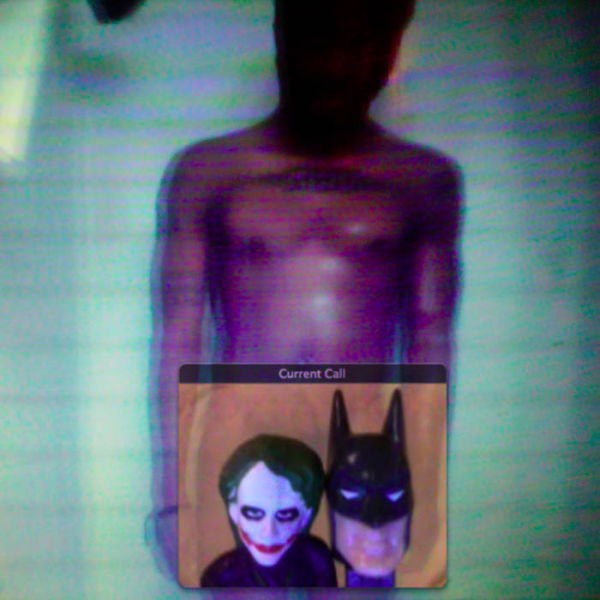
For example, many people know of Carly Rae Jepsen’s 2011 hit “Call Me Maybe,” a typical, yet fun, three-minute-long pop song about romantic struggles. In 2013, Devon Hendryx covered the song, still titled “Call Me Maybe.” The lyrics only have some minor changes, adding new lines and changing “Boys” to “Girls.” The main difference is in the instrumental and length, extending the song to six minutes, and exchanging the quick, up-beat instrumental for a slow droning pulsating synth, with lots of background noises: rustling paper, sniffling, snapping, and a broadcast of a WWE battle between The Undertaker and Shawn Micheals can be heard in the outro.
Hendryx would eventually change his name, and his style, to that of JPEGMAFIA, with the first official release available on Spotify being Black Ben Carson (2016). The second song truly shows the change in style between Devon Hendryx and JPEGMAFIA. “All Caps No Spaces,” similarly to Yeezus, is a full-frontal attack on the senses. Extremely distorted drums pelt the listener, which is followed by what I can only describe as a hail of gunfire shooting out glass shards, like rain falling on sheet metal but ten times worse. This song might kill a medieval peasant child. JPEGMAFIA recognizes, maybe even revels in, the loudness and experimentation of the song, at the end he plays what sounds like a recording of a friend reacting to the song.
“I ain’t never heard something… so…
Yo…
What the f**k was that s**t you just played for me, yo?
Nah, for real, what the f**k was that s**t? Nah
I ain’t wanna hear that s**t again I gotta, yo, what?
That s**t was so hard
Yo…
I don’t even know where I’m at right now…
I’m on Planet Mafia and s**t
S**t ridiculous in these headphones
Ri-diculous in these headphones” (“All Caps No Spaces”)
Lil Ugly Mane underwent a similar transition, starting with somewhat typical rap, moving into an experimental, harder-hitting sub-genre of rap, but ending in a completely different location, with a mixture of pop, typical acoustics, and plunderphonics.
Lil Ugly Mane
Lil Ugly Mane, real name Travis Miller, was born May 13, 1984, in Richmond, Virginia. He started creating and releasing music around the early 2000s under various genres and names, releasing Industrial, Noise, and Black Metal projects under various names, such as Vudmurk, Seidhr, Across, Public Garden, and Rats—he even dipped into hip-hop, rapping under the name Young Gus (Last FM).
One could point this diversity in exploration to something Travis Miller said in an interview with Cult Classic: “I’m intersectional. I grew up punk. I got into jazz and through that I got into hip hop. Through hip hop I got into all sorts of s**t because I was obsessed with the idea of sampling. I love sampling. I think it’s fundamental to what hip-hop is. I think I’m just an amalgamation or culmination of a bunch of different s**t. I don’t really like to put a word on it. That kinda comes from the noise scene really. When I was involved in all of that, it was just a bunch of people that liked music” (Cult Classic).

Mista Thug Isolation
There is a lot more to explore behind Travis Miller’s multiple pen names, but the majority of his work is under the Lil Ugly Mane label, and the major starting point for Lil Ugly Mane is his first studio album Mista Thug Isolation (2012).

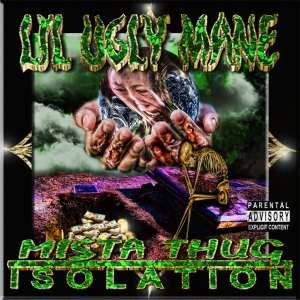
Right off the bat, the album cover shares some similarities with other hip-hop albums under the genre of “Memphis Rap” or “Southern Hip Hop.” Not only does Mista Thug Isolation share similarities with the album cover, but it’s content also falls under the genre, also including elements of “Horrorcore” “Jazz Rap” “Phonk” and “Cloud Rap” (Rate Your Music).
The tracklist is also quite colorful, with such songs as “Alone and Suffering (Interlude),” “Serious S**t,” “Maniac Drug Dealer III,” and “H*eish A** B**ch,” Anybody looking for a traditional sound or reasonable songs will be far from finding it in this, however one might cling to the opening track, which sounds extremely classical, like 18th century classical, “Mista Thug Isolation (12th Movement).”
The first song is anything but classical—it is a noise track, an amalgamation of high pitched ringing, wing and/or blowing into the microphone, sounds of futuristic technology, and a single identifiable haunting piano line. After this song, the listener will make their way through the album, and eventually come to my personal favorite song from the project, “Radiation (Lung Pollution).”
The song features a jazz sample, a very beautiful saxophone lick that is repeated throughout the song, specifically in the chorus where Lil Ugly Mane repeats one of many southern hip hop samples. Otherwise the song is very energetic, with an oddly loud bass. The lyrical content is fairly standard for Memphis Rap, bragging about money, drugs, cars, women, and proclaiming their own talent. It may not be the most intelligent or enlightening thing to write about, but it is still a little fun.
“Puffin’ on that paradise, that kush has got me paralyzed
Verified, I’m very high, whip so clean, it’s sterilized
Terrorize yo block, you in my way? Why ain’t ya moving?
Me and Supa Sortahuman rolled a quarter in a Cuban, now we groovin’
Feeling extra throwed, hot like wings of buffalos
Just to let you bustas know, them duffel bags got extra dough
Only f**k with sexy h*es, I swear I leave the rest alone
Underground, I’m lesser known, but in the hood they feel my testimony
Y’all ain’t smoking on my level, y’all ain’t f**king on my level
Y’all ain’t dranking on my level, y’all ain’t nothing on my level” (“Radiation Lung Pollution”)
The rest of the album contains similar lyrics and attitudes. Particularly notable is the type of casual misogyny typical of a “playboy” seen in such characters like Barney Stinson, from the popular television series How I Met Your Mother, who spends lots of time pursuing women and emotionless one-night stands.
After Mista Thug Isolation, Lil Ugly Mane would put out many other projects, two long singles, “Uneven Compromise” and “On Doing An Evil Deed Blues” which are 11 and 8 minutes long, respectively. He also put out three large albums, dubbed Three Sided Tape: Volume One, Three Sided Tape: Volume Two, and Third Side Of Tape. The three-sided tape trilogy is mostly instrumentals, with some songwriting from Lil Ugly Mane, or guest features, but otherwise nothing too notable.
Oblivion Access
Lil Ugly Mane’s next major project would be 2015’s Oblivion Access, which I briefly described in the intro to this article. Both the sound, lyrical content, and general attitudes changed massively.
If the first two Lil Ugly Mane albums were horror genres, Mista Thug Isolation would be a typical halloween slasher film, like Friday the 13th, whereas Oblivion Access is more reminiscent of a technological, psychological, but also simultaneously guttural and fleshy horror. The only thing I can really compare it to would be the works of Swiss surrealist artist H.R. Giger, and those that draw inspiration from Giger, like the video game Scorn.
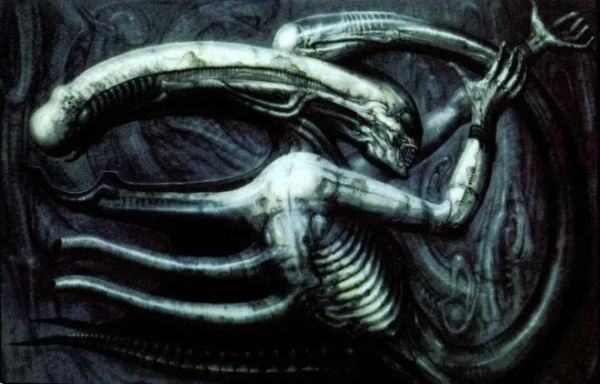
I have already made an overly poetic description of two songs from Oblivion Access in the intro to this article, but allow me to indulge in another one. “Columns,” the second song on the album, (not counting the instrumental opening), is a comparatively lightweight song, with floaty human-esque whimpers, soft hitting of bells, and relatively calm vocal delivery and percussion. Lyrically, Lil Ugly Mane seems to delve into existential questioning of religion, human nature, and the current system.
“We’re stacking bodies up in boxes in a distant war
I eat my vegetables, I like the broccoli (True)
What is more fictitious, the gods or you and I?
You needs a court’s admission, you think the cops comply?
I don’t acknowledge systems, I never found it wise
I wasn’t born to just support the s**t that’s palpable
I don’t see Earth as disproportionally valuable
If there’s a god, I’m sure his name is unpronounceable
If there’s a hell, I’m sure we’ll all be held accountable
I drew a portrait of Abraxas on a napkin
Sex has never given me an ounce of satisfaction
Life throws a lot of questions but I never ask them
Facts are human arrogance, we barely know a fraction” (Columns)
Off the bat we can try to extrapolate a couple key points. First, he has turned from his playboy ways in Mista Thug Isolation, or at least doesn’t seem to care for chasing after sexual gratification. He also doesn’t value nor care for human existence. Many researchers and philosophers have searched for meaning, “Where do humans come from?” “Are we alone in the universe?” “Why do humans have a conscience?” “Is there a god?” Lil Ugly Mane takes all these questions and just crumples them in a ball and throws it in a bonfire, he simply does not bother or care.
Lil Ugly Mane also discusses religion, questioning “Who is more fictitious, the gods or you and I?” This doesn’t come across as a snarky Atheist debating a Christian, but more so someone pondering the existence of A god, not the Chrisitan God, not Yahweh, not Allah, not Jehova, not Brahma, Vishnu, or Shiva, but simply A being of supreme power. He refuses to “acknowledge systems” of any pre-existing religion, but one could make the reasonable guess that if being of supreme power existed, something that created the universe from corner to corner, it would be incomprehensible to us simple apes, and this god would have an unpronounceable name.
Mentioning Abraxas, and specifically his portrait on a napkin eludes me, however Abraxas, the gnostic “Great Archon” or otherwise “Great Builder” is referenced in various other media, such as the 2021 video game Cruelty Squad, which shares a lot of aesthetic similarities of Oblivion Access: a technological dystopia, oozing with meat and GPU processors, cynical and hard to look at, with a disregard for human existence.


Lil Ugly Mane would laugh in my face if he saw this article, or at least he would’ve in 2015, as in the closing song, disgustingly titled “Intent And Purulent Discharge” he mocks people analyzing his work, repeating the “Chorus” in a wobbly and goofy voice:
“Til some critic go and write it out, a longwinded trite amount
Of words that you can slide around some websites and fight about
Meaning’s what your life’s without, surf until you’re wipin’ out
Conservation activist, you’re living with your lights out
What’s it all mean? What’s he saying when he says it?
What’s the underlying topic? What’s the motive in his message?”
(“Intent And Purulent Discharge”)
He repeats these last two sentences approximately 21 times, concluding with a small skit of sorts:
“You know what the rattling pieces are in this, don’t you?”
“What?”
“Some little pieces of buffalo chicken”
“Ohh”
Despite this open mockery of analysis, this is my favorite Lil Ugly Mane project. I absolutely love the sound, mixture of fleshy and metallic content matter. This project also signals the beginning of a change for Lil Ugly Mane, towards a deeper, more introspective type of artist.
Bedwetter
In 2017, Lil Ugly Mane, under the alias “Bedwetter,” released Vol. 1: Flick Your Tongue Against Your Teeth And Describe The Present. There is no Volume 2.
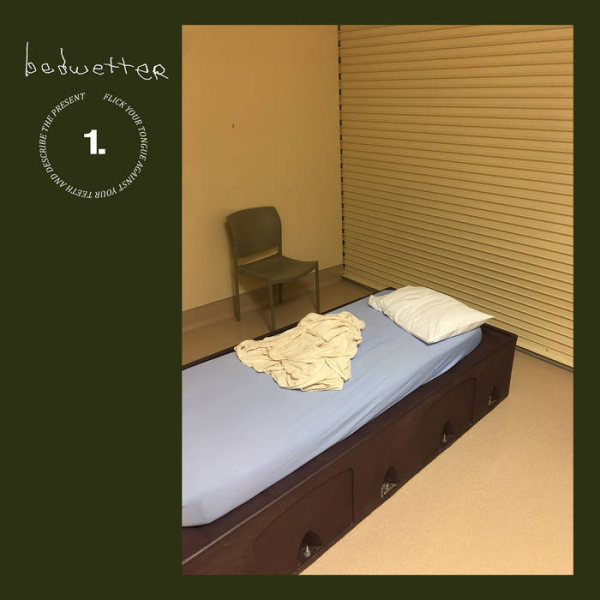
Once again, a departure from other Lil Ugly Mane projects, but there are some connections: still an experimental hip-hop project, with some ambience and cloud rap influences, but another genre sticks out, conscious hip-hop
The second track, “Man Wearing A Helmet” is very quiet, opening with a solemn combination of rain and what sounds like a 911 call of a woman saying “there is a man inside my home.” Some other indistinguishable vocal samples are combined with the rain, until the song truly starts. Mostly composed of a quiet synth that somewhat produces a melody, composed with occasional rapid-fire hi-hats, but Travis Miller’s vocals dominate the mix.
It is impossible to avoid the lyrics that tell the story of a child’s abduction. It is unknown if this is a real story that happened to Travis Miller, a dramatization, or fictional, but the explicit detail and chorus blur the lines even further. Miller almost sounds like he’s about to break into tears as he finishes the verse, before the instrumental explodes into a disjointing symphony, forcing Miller into the chorus, where he repeats
“All these f**king years I just don’t remember
All this f**king time I just don’t remember
Did I lose my mind? I just don’t remember
Did I die, am I lying? I just don’t remember” (“Man Wearing A Helmet”)
The partial anger expressed in “Man Wearing A Helmet” is most amplified in the next song, “Stoop Lights.”
“Stoop Lights” opens with a faint flickering noise, almost like static, but not as harsh, more wispy, like wind. A synth joins in, quietly pulsing out a second layer of noise, then a deep type of melody. The song slowly rises to its feet accompanied by drums, and Travis Miller.
“I don’t got hate for myself, I got nothing to say to me
I spend every day with me
I’m tired, I need an escape
It’s hard to relate to me
Straight out the bottle, no chasing it
Look in my eyes, I’m a space cadet
Just a matter of time, I’m embracing death
Dead pool, you should place a bet” (“Stoop Lights”)
Immediately off the bat, Travis Miller presents the main theme of this song, but doubles down on it, and makes it obvious in the end of the first verse, leading into the chorus:
“So I’mma see black till my eyes adjust
Till my time is up, till my mind is f**ked
Limp around town on the Irish crutch
With a belly full of whisky and self-disgust
Peekin’ at my own dead body through splayed hands
As I grunt and I drool like a caveman
F**ked up, I’m a fool
With a room with a view of a wasteland
…
Sit and watch the stoop lights flicker
Stoop lights flicker ‘cuz my eyes half closed
Eyes half closed ‘cuz the bottle half gone
Bottle half gone, stoop lights on strobe
Can’t stop thinking, that’s my mind on liquor
Mind on liquor, now my mind half gone
Mind half gone, ‘cuz I wish I had a family
Family ain’t here, ‘cuz I been living wrong” (“Stoop Lights”)
Miller makes analysis quite easy here, as he lays out a step by step progression of his alcoholism, he drinks until the bottle is half gone, due to this his eyes twitch, they’re half closed, and the stoop lights flicker, his problems compound as his family, a support system, isn’t present, he then elaborates on his lack of a support system, or even just a lack of friends in general:
“Guess I’m still sober on occasion
And that’s enough for me to rationalize inebriation
I told you I ain’t right, you knew it going in
Just shut the fuck up if you wanna be a friend
I don’t want to stretch you more than you extend
I don’t want to spit in the hand that you lend
I did it to myself, I get what I deserve
Thoughts in my head, feel like a raw nerve
I’m lookin’ for an answer, I don’t want to hurt but
I just want to sleep when I’m tired of earth” (“Stoop Lights”)
According to the National Institute of Health (NIH), Alcohol Use Disorder (AUD) is a medical condition which encompasses alcohol dependence, alcohol addiction, and the generally used term “alcoholism.” AUD can be defined as a “medical condition characterized by an impaired ability to stop or control alcohol use despite adverse social, occupational, or health consequences.”
The internal interrogation even further continues with the last non-instrumental song, “Haze of Interference.” Travis Miller seems to reflect on his career, his decisions, and lash out in anger—
“Save your moral panic for the preacher or the president
Or any of the other s**t you babies think is relevant
…
You never thought about you only
You never had to worry about which part of you to show me
You’re just as stupid as you’ve always been
Treat your stupid little problems like a molecule of oxygen
You’re never getting better, you’re addicted to the madness
You treat it like a muse, are you happy now, Travis?
I could go inside a window and disappear
…
I’m standing by a microphone, I’m yelling at a wall
Pick a thousand names, you’re still nobody at all” (“Haze of Interference”)
He doubles down on criticism he made in his previous album, Oblivion Access:
“Vocal ’bout opinions, ’bout elections up in DC
With a total lack of knowledge, rope around your neck was easy” (“Columns”)
In the next segment of “Haze of Interference,” Travis Miller seems to criticize SOMEBODY, possibly many different concepts, changing from line to line, but this is the only time he has used his real name in a song. He then concludes with his career, pointing out the absurd visual that is when recording music, “Standing by a microphone, yelling at a wall” he then points out his multiple persons, rotating through Lil Ugly Mane, Lyle Ugleman, Shawn Kemp, Bedwetter, Vudmurk, and several other small projects.
Volcanic Bird Enemy & The Voiced Concern
Ignoring the Bedwetter project, Lil Ugly Mane’s next studio album would be released six years after Oblivion Access. In 2021, with the release of Volcanic Bird Enemy & The Voiced Concern.

Compared to Travis Miller’s previous work, Volcanic Bird Enemy… is a massive departure from his usual genres. It still has some hip-hop influences, but it’s much slower in tempo, in contrast, It also has some punk rock adjacent songs. Many classify it under “Trip Hop” “Neo-Psychedelia” or “Plunderphonics.”
Often the lyrical content is small, with a small amount of verses per song, but often repeating choruses and refrains. However, this means the lyrical content is dense, packed to the brim with metaphor, allegory, and hard to decipher storytelling and descriptions. I personally think this album is about Miller’s relationship with a romantic partner, however it is an equally viable alternative that it is aout Miller’s relatioship with alcohol.
The first song with the most “easy” to pull apart song writing is “Benadryl Submarine”:
“Stuck back in that welded worm with you
Slink around the farmer’s house without our shoes
Ask your talk show questions
Kick me around
I’ll pretend I paid attention
Then I’ll paddle out and drown” (Benadryl Submarine)
The most apparent threads we can pull at are these feelings of an imbalance in the relationship between Travis Miller, unbalanced conversations, with easy, or “talk show” questions. Miller doesn’t respond either, pretending to pay attention. Then in one of the most straightforward moments in the whole album, he lays it all out infront of us in the chorus.
“Feeling like I’m just a bridge for you to cross a stream
You watch me fall apart and never intervene
Benadryl submarine, benadryl submarine” (Benadryl Submarine)
Miller is being used, a bridge to cross the stream, to get to another place or goal, and if Miller falls apart, his partner doesn’t intervene or help him, merely watching. My best guess for what “Benadryl Submarine” means is that it’s an allusion to drug use. Miller has spoken out about substance abuse in his previous songs, mostly alcohol, but it’s not too far of a stretch to assume he would abuse an over-the-counter drug, or atleast take enough to feel submerged, like a submarine. Also Benadryl, and most pills, are shaped like a capsule, kind of like a submarine.
Infact, in a live performance of his 2022 single, “low tide at the dryin’ out facility” Travis Miller claimed to have been to rehab 5 times “in the past year” so he’s probably referring to the year, 2021, when Volcanic Bird Enemy… was released. “low tide at the dryin’ out facility” is much more straightforward, direct, and explicit with its meaning than Volcanic Bird Enemy…
“I took one last sip and got an ambulance trip
Breathalyzer told ’em it was .46
Doc on duty wasn’t having my s**t
Took one little look, I was in and out quick
Wait around the hop ’til the tech showed up
Went back to detox and didn’t even throw up
Sweating through the sheets
Just shaking, thinking of you
Welcome home, give up your phone
Clonazepam, trazodone
We’ll get high while we get dry
So we don’t die, I suppose” (low tide at the dryin’ out facility)
For reference, the legal amount of Blood Alcohol Level you are allowed (to stay driving) is .08, or in other words, Miller is 5.75 times above the legal limit to drive. Additionally, Miller mentions 3 prescription drugs through the song, Clonazepam, Trazodone, and later in a repeat of the chorus, Ativan, (aka Lorazepam.) These 3 drugs seem to be used to control anxiety disorders, depression, seizures, or to slow down the nervous system. These drugs would seem to be used to control Alcohol Use Disorder, specifically any withdrawal symptoms, such as anxiety, excessive sweating, heart palpitations, tremors, and seizures.
The next song from Volcanic Bird Enemy… titled “Human Fly” also has some small glimpses into Travis Miller’s situation:
“You treat mistakes like a museum
You always stand there looking parched
There’s not some tapestry of reason
There is no fabric made of stars
So early on a Thursday, I sat with a baby
He told me what’s happenin’ lately
Fictitious account of riddles and clues
The devil said dance with my daughter
I said I’d consider the offer
‘Cause when I die, I can wear your clothes and shoes
How are you surprised?
That the bluest sky loses hue at night
I’m a human fly, I’m a human fly” (Human Fly)
Miller seems to be talking to his partner, and their tendency to remember his mistakes, and hold them above his head, collecting mistakes like a museum collects artifacts, and putting them on display in a rotation. Unfortunately for Miller, there is not a massive woven “tapestry of reason” to explain his mistakes, or to defend himself in an argument, sometimes you just genuinely mess up. The baby’s “fictitious account of riddles and clues” seems to be an unreliable source of information, not useful to Miller; he can’t piece together a tapestry of reason using the tangled threads of a baby’s babbling imagination. Then on a twist on the phrase “Dance with the devil” Miller implies that his partner is the daughter of the devil himself, some sort of evil being, but he still considers the offer, despite any outward appearances, maybe he only realized this was the devil’s daughter after spending lots of time together.
My best guess at the meaning of the chorus could be that his partner doesn’t understand something obvious, maybe they overlook something that could explain Miller’s mistakes, maybe they don’t understand why Miller feels awful, why the bluest, most bright and beautiful sky loses hue at night, in literal dark moments. Miller then compares himself to a fly, something small, batted around, and not significant. Or he could possibly be playing off the phrase “fly on the wall” ; he is simply an observer, and not able to change or affect what is unfolding in front of him.
I already previously mentioned “Cold In Here” the song I first listened to from Travis Miller (artist name Lil Ugly Mane) where Miller turns around to himself, questioning where he was during important moments, any possible neglect he has committed, possibly due to his heavy alcohol use, or any other unmentioned qualities.
“She says I’m gonna die if I stay so preoccupied
With things that happen overnight
Dreams that feel as real as life
Under city lights, she said she sees the dead that’s in my eyes
Ways I waste my time, the days that pass me by
But where was I?
Where was I?
Oh, where was I?” (Cold In Here)
“Styrofoam” alludes to Miller’s alcoholism, his commitment to his partner, and his general depressive symptoms:
“If everything was styrofoam
You’d still be on my mind
It’s always midnight
And the day shift never starts
And I just pick fights
And I fall asleep in bars
I feel tired
And I think I’m done with trying
If everything was styrofoam
I wouldn’t be alive” (Styrofoam)
As has been previously mentioned, Miller’s writing in Volcanic Bird Enemy … is difficult to dissect, because instead of directly stating his Blood Alcohol Content, or his dissatisfaction with sexual encounters, the listener has to rack their mind as to what Miller means by “If everything was styrofoam”
My best guess is that Styrofoam is a cheap and mass produced material, it’s also not a naturally occurring thing, therefore, if the entire world was filled with cheap, fake, and mass produced materials, he would cling to the only thing that seems to be real to him, his relationship. However this world would be very degrading, and Miller “Wouldn’t be alive.”
Track 9, “Discard”, features one of the very few direct lyrics, plainly outlining Millers general depressive mood possibly influenced by his current situation with his partner:
“I had a memory and lost it and pretended that’s cathartic
Have a tendency to promise s**t that I can not accomplish
Like the energy to take the garbage out of my apartment
I’m the enemy of progress, I just wanna be discarded” (Discard)
Depression inflicts various ailments on someone, one of them being a general lack of energy, “so even small tasks take effort.” Taking out the garbage and generally tending to the cleanliness of one’s living space could be described as a small task, especially the individual parts such as taking out the garbage. And Miller promises that he’s going to do this, but he simply cannot accomplish it. Trouble thinking and remembering things are also some of the symptoms of depression. No doubt worsened by the time at which this album was released, during the height of COVID in 2021.
“Into A Life” displays a more positive Miller, possibly recounting the past and his naivete.
“Last time I saw you, all the power had been shut off
There was spoiled meat, it smelled like alcohol
You made me impatient like a V.32 modem
But I knew I was happy that you called
Words were hanging off my lips and my dumb brain was on the fritz
I was probably full of s**t, anyway
I’m still falling off the bar, I’m still living way too hard
I’d like to tell you something you could praise
I want to get back into a life where I know you
I want to get back into a life where I know you
You wear this madness like a uniform
I wish that you’d ignore it
I was condescending every time you tried to end it
Crises left unattended, carry on” (Into A Life)
Miller desires to return to a point in his life where he knew his partner, more intimately, when they were happier, when despite being impatient, and seeing each other in a smelly power-less house, Miller was still happy to receive a call from his partner.
Miller also admits his own faults, he still continues to drink, falling off the bar. But he wants to get better, he wants to tell his partner something that is worthy of praise. Miller also wants his partner to get better, to ignore their madness that they proudly wear like a uniform. But it seems that anytime progress was being made, Miller came off as condescending, his brain failed to function, was “on the fritz” or he wouldn’t provided useful information because he was “full of s**t”, and so “Crises [were] left unattended, carry on”
“Clapping Seal” contains a minute of silence at the end of the streaming version, however, Miller writes on his bandcamp page:
“OBTUSE? I COULD HAVE DONE IT? No, I could have. i could have waited and tried and looked for the right files. BUT I WANTED TO DO IT RIGHT NOW? i did. i didnt want to figure out which clappingseal5 fix 6 vox.wav was the right one. it honestly doesnt matter. somebody has to walk the plank. somebody has to be the plank.”
Miller seemed to have been in a rush to get this album finished with, and not bother digging through files to see which 5th version of Clapping Seal with 6 fixes was the correct Clapping Seal. A very understandable frustration.
“Clapping Seal” contains various descriptions of Millers current condition, that seem to reflect an imbalance in his relationship,
“I thought it was real
And I clapped like a seal
And I balanced the ball on my nose
But even after my spell
Hey, you never felt
The things that I felt, I suppose
…
I’m stained from a year of deceiving mysеlf
And I’m not sure it’ll pass
The headachеs I get are serrated
I’m the bugs you squash under your feet
Your kiss always tastes so metallic
From the fillings that line all your teeth
I’m the cockroach that wakes up your roommates
I’m the laughter that nobody knows
…
I’m wasting my time but I’m happy
Grinding my teeth into dust
Spitting the shards of the past like a dart
There’s nothing much left to discuss” (Clapping Seal)
Miller seems to actively desire his partner, however his partner does not seem to reciprocate the feelings, and Miller spent an entire year deceiving himself. He wasted his time, but remarkably, he’s still happy. Miller then seems to put himself into the perspective of his partner, and through their eyes Miller sees himself as something small, useless, and insignificant, bugs that are squashed, cockroaches that bother other people, and neglected happiness, a laughter that nobody knows. Miller’s conversations with his partner also seem to be retreading, “Spitting the shards of the past … There’s nothing much left to discuss”
“VPN” is named after, well, a VPN, a Virtual Private Network, something typically used to protect oneself from bad actors on the internet, cloak their location, or otherwise protect themselves.
“These static walls
They all extend
I sit inside and rot behind my VPN
You swallowed all of my innocence
And I let you in
I let you win
Let me descend” (VPN)
Despite Miller putting up protection, static walls that all extended, he also takes precautions, isolating himself, sitting inside and rotting behind a wall of protection, even though it is a risk to his well being. Despite all this protection, his partner was still let in, and swallowed all of Miller’s innocence. Maybe all of the hopeful feelings from ”Into A Life” and “Clapping Seal” dissipated, Miller no longer wishes to know his partner again, he no longer hopes for the good feelings to be returned, he merely wants to descend.
These feelings of apathy are somewhat clarified in the next song, “Stock Car” which repeats a combination of the same few lines for a while.
“I don’t wanna wake you up
I don’t even care
No delineation from the voices in the air
I don’t wanna wake you up, wake you up
I don’t wanna wake you up, wake you up
I don’t wanna wake you up
I don’t even care
No delineation from the voices in the air
No delineation from the voices in the air
No delineation from the voices in the air” (Stock Car)
Miller doesn’t desire to wake his partner up, I think this could be literal, does not want to wake them up, does not want to risk them getting angry, merely wants to stay in an independent bliss state. Or it could be figurative, does not want to wake up the sleeping giant that rests inside their partner. A “delineation” is “the action of indicating the exact position of a border or boundary.” So if the “voices in the air” the general atmosphere of the room and conversation does not indicate to Miller where the boundaries and borders are, he does not want to take any risks, and will assume a passive role, trying not to anger their partner.
The next song, “Cursor” has quite the dissonance between lyrical content and musical structure. Consisting of a goofy sounding horn, acoustic guitar, occasional sound of bike gears and spokes, a literal dog barking, and a beat switch that contains swift drum beat and catchy synths, you’d expect the song to be childish, innocent, joyous. However “Cursor” is one of the few songs on Volcanic Bird Enemy … that contain direct attacks.
The previous songs merely have Miller reacting, describing how his partner makes him feel, his occasional depressive symptoms, general downer mood, his desire to rekindle the relationship, hope for his partner to return the feelings. However after “Stock Car” Miller seems to have changed a switch, not entirely, some of those feelings still linger, but he has some negative feelings directed at his partner, maybe best described as catharsis or schadenfreude:
“Sympathy’s a funny thing
Sometimes I just ain’t got the time for it
And I don’t like your face, your brain, your words
Or even your hindquarters
But sometimes when you’re away
You are all that’s on my mind
I wanna share a smile
And engage your observations
I don’t like when you’re unhappy
I don’t like when you cry
I just want you to have a bad day
I hope it’s worse for you today, whoa oh
I want it bad for you today, whoa oh
I set a curse for you today, whoa oh
Everything’ll be okay” (Cursor)
Miller plainly states, “I don’t like your appearance, I don’t like your mind, I don’t like what you say.” A somewhat significant change, especially for the guy who 8 years earlier made Mista Thug Isolation. However some of Millers old feelings still linger, his partner is still on his mind, he wants to share happiness, and share observations, despite previously not liking his partners observations not 5 lines earlier. Miller then comments “I don;t like when you’re unhappy I don’t like when you cry” which can either be that seeing his partner, someone he seemed to care about in a state of negativity, he sympathizes with them. However, given he doesn’t have the energy for sympathy, he might just not want their partner to express their feelings, especially when this line is repeated later:
“I don’t like when you’re unhappy
But I don’t like it either when you’re great
When I’m hurling expletives at red lights
I’m always talking to you
And every time I light my cigarettes
I hope that your heart’s burning too” (Cursor)
After these lines, combined with the childish and innocent instrumental, Miller bursts into the repeated chorus:
“I want it worse for you today
I want it bad for you, oh oh
I want it worse for you today
I want it bad for you, oh oh” (Cursor)
Miller wants his partner to have a bad day.
The next two songs are not as vitriolic, with some toned down feelings, some mild sympathies, uncaring about his own condition, or describing the situation his partner put him in:
“I’ve gotten countless lacerations
From the boiling jagged edges of your pride
Would you write a funny caption in quotations
Under pictures of me mummified in wire” (Bold Futile Flavor)
“And you can stand above me lookin’ down
But I can see from here, it’s just a broken ladder
And I would trade my place with you in hell
‘Cause I can say for sure, it doesn’t even matter
You exclaimed your proclamations
Pour another drink
…
First, we’re grazin’ in the sunshine
Then we’re hangin’ by a hook” (Broken Ladder)
The album concludes with a heavily punk rock inspired track, “Porcelain Slightly.”
“I hate your constant oscillations
You just go back and forth and back and forth again
It’s like your f**kin’ occupation
How you shatter my relief like porcelain
I’ll wait for panic to subside
Then scrape the tarnish from my mind
There’s never any place to hide
There’s never any place to hide
Rotting home (x4)
I hate these courtroom presentations
There’s no one here with something to defend
These long obnoxious convеrsations
They just go on and on and on and never еnd
I count the stars like anniversaries
From the window of this prison that I’m in
Sometimes the world will show me mercy
Then you shattered my relief like porcelain
I’ll wait for panic to subside
Then scrape the tarnish from my mind
There’s never any place to hide
There’s never any place to hide
Rotted home (x4)” (Porcelain Slightly)
Miller continues the direct attacks from “Cursor” with I believe to be the only usage of the word “f**k” throughout this entire album, compared to his last project under the Bedwetter alias, where he used the word in a repeated hook.
In a motif of sorts from an earlier song “Into A Life,” Miller changes the tables, instead of his partner improving and Miller causing a disruption, and the crises being ignored and moved on from, Miller is instead the person improving, his being shown relief, and his partner, like a bull in a china shop, shatters that relief as if it were porcelain. These oscillations probably add onto this trouble, possibly showing Miller some relief, then shattering that hope, repeatedly.
Miller attempts to recover from these oscillations, letting panic subside, dusting himself back off, and getting on his feet again, where he returns to a rotting home with his partner. Once again, Miller is not impressed by the arguments he has with his partner, nor their intelligence, describing them as “talk show questions” in “Benadryl Submarine”, and “courtroom presentations [where] there’s no one here with something to defend” in “Porcelain Slightly”
Miller describes his situation as a “prison” with “nowhere to hide” however sometimes he is shown mercy by the world, maybe good fortune strikes him, he has a good day, buys something he really wanted, whatever it may be, this good hope is shattered like porcelain.
Miller has not made any comments about his current situation, recent singles aren’t very direct with their messaging, and Instagram story updates are also lacking in information about his relationships. Miller is also a very private person, and has probably intentionally kept his mouth shut. The most we can do is hope for the best
Many artists have used their creativity to express themselves, or to explore new boundaries, push musical limits, to test out new ideas. But none have used their creativity and genre change in such a unique way as Travis Miller (aka Lil Ugly Mane) has through his nearly 20 year career. Through changing genres and styles he was able to explore abstract, cosmic horror and H.R. Geiger adjacent thoughts about the earth and humanity. He then returned to a somewhat more “typical” genre, but still changed his lyrical content to begin an exploration of the internal self, one’s childhood, and deep personal problems. Then finally, through a third genre and lyrical change, Travis Miller explored what it means to be in an abusive relationship, the dynamics inside them, and serve as a beacon of hope for other people.







